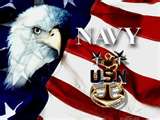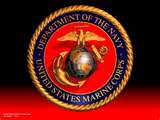During your high school years you were visited by a representative of one of these military branch of services. Each one said how unique their specific branch of service and probably tossed in a few promises they knew they couldn't keep just to lure you in. I served 4 years in the U.S. Navy repairing elevators used to transport weapons from one place to another. I got to see many parts of the world during my time in and treasure those moments. My favorite places to visit were in Europe seeing different countries such as France, Italy, Egypt, Turkey, Israel, Spain. The rich histories of each individual country fascinated me, as each location was different from anything you saw back home.
Serving in the military isn't for everybody as there are many periods of adjustments to be made once you're on your way to boot camp. Each branch of service has varied lengths of boot camp, which basically gives your drill instructor an indication of whether you'll make it in their branch of service.
When I entered the U.S. Navy, Ronald Reagan was president of the united states, top gun proved to be an excellent recruiting tool for all the services. I was nervous like anyone else was, had many moments that I dearly missed being home.
I went to boot camp at Great Lakes Illinois in the middle of bloody winter, where the wind chill factor was often way below zero. Upon entering boot camp, you're given a brief history of your specific branch of service and shown the rank of command in order. You were given supplies and clothes during the early days, taught how to properly make your bed, etc. The primary reason for boot camp is to see whether you have what it takes to succeed in the military. During the years I served, there were many other sailors who had no choice, but to serve because of their problems with the law.
Any recruits caught with drugs in their system were automatically sent on their merry way. Any recruits caught enlisting fraudulently were served the big chicken dinner with no dessert. The one specific thing I learned real quick was that the type of discharge you received at the end of your enlistment would either help or haunt you for the remainder of your life. There were often recruits sent home for medical reasons and given medical discharges. I completed boot camp and was sent to newport news virginia to the shipyards on board the U.S.S. Dwight D. Eisenhower. At that time Ike was the last ship anyone wanted to serve on because so many careers ended faster than the ink could dry.
Captain Macke was a by the book officer and the personnel he tossed out via discharge reflected that. Macke commanded the USS Dwight D. Eisenhower from July 6, 1984 through October 18, 1986. Mr. Macke achieved the rank of four admiral later in his career, however, his career concluded under less then idea conditions when he was fired from USPACOM ( United States Pacific Command) in November 1995, hours after making comments considered insensitive to reporters about the case of U.S. sailors and a Marine accused of kidnapping, beating and raping a 12-year-old Japanese girl. Later in 1996 he was censured by the Navy for matters related to an affair he had before his retirement with an unidentified female Marine Corps lieutenant colonel. Mr. Macke retired as a two admiral on April 6,1996.
The following discharges apply to all military personnel:
1.1.1 Honorable:
Service members who meet or exceed the required standards of duty performance and personal conduct, and who complete their tours of duty, normally receive honorable discharges.
1.1.2 General:
General discharges are given to service members whose performance is satisfactory but is marked by a considerable departure in duty performance and conduct expected of military members.
1.1.3 Other Than Honorable (OTH):
An OTH is the most severe form of administrative discharge. This type of discharge represents a serious departure from the conduct and performance expected of all military members.
1.1.4 Bad Conduct (BCD): Colloquially referred to as the "Big Chicken Dinner" by military personnel.
Unlike an administrative discharge, a Bad Conduct Discharge (BCD) is a punitive discharge that can only be given by a court-martial (either Special or General) as punishment to an enlisted service-member.
1.1.5 Dishonorable:
A dishonorable discharge (DD), like a BCD, is a punitive discharge rather than an administrative discharge. It can only be handed down to an enlisted member by a general court-martial. Dishonorable discharges are handed down for what the military considers the most reprehensible conduct. In many states a dishonorable discharge is deemed the equivalent of a felony conviction, with attendant loss of civil rights. Additionally, US federal law prohibits ownership of firearms by those who have been dishonorably discharged.
1.1.6 Entry level separation (ELS):
Entry level separations, or uncharacterized discharge, are given to individuals who separate prior to completing 180 days of military service, or when discharge action was initiated prior to 180 days of service. This type of discharge does not attempt to characterize service as good or bad.
1.1.7 Commissioned officers:
cannot be reduced in rank by a court-martial, nor can they be given a bad conduct discharge or a dishonorable discharge. If an officer is convicted by a General Court-Martial, then that officer's sentence can include a "dismissal." This is considered to be the same as a dishonorable discharge.
Appeal Procedures
Each military personnel discharged with less than honorable discharges are able to appeal their discharge with slim hopes it may be upgraded to a more favorable discharge status. After a discharge, the service member (or his or her next-of-kin, if the service member is deceased) can appeal the type of discharge that was given by filling out Form DD-293. The service member (or his or her next of kin if the service member is deceased) must submit issues that claim an impropriety or inequity in discharge. Most of these requests are not approved, and then only if the service member can prove he or she was unfairly denied an honorable characterization.
http://en.wikipedia.org/wiki/Military_discharge#Honorable
Regardless of which branch of service you decide to serve with, including all local national guard services, make sure that's what you really want to do. To often people serve in the military because someone said they should from family, friends, etc. I only served 4 years because as it turned a career in the military wasn't for me, it's a choice I've never regretted. In today's economy though serving in the military isn't such a bad option in the sense that you know you'll always have a job for the length of your enlistment. Research all branches of service and then decide whether a possible military career is for you, whether you serve 4 years or 20 years, go from there.





No comments:
Post a Comment